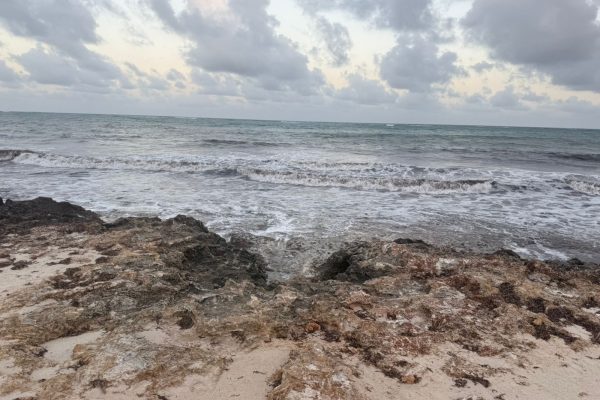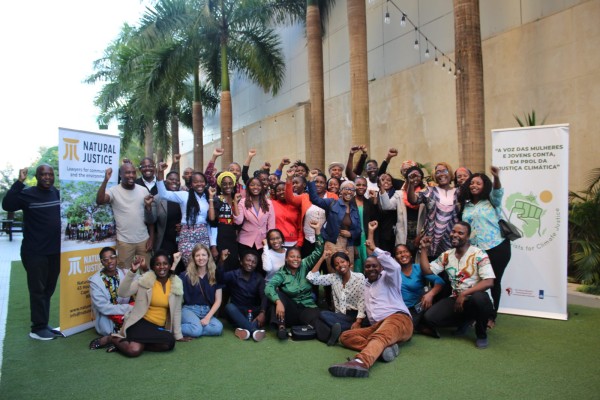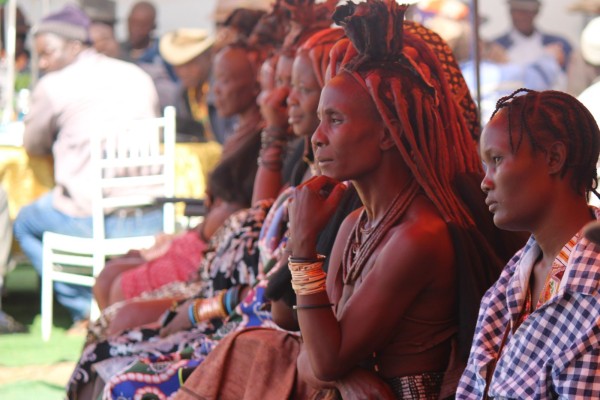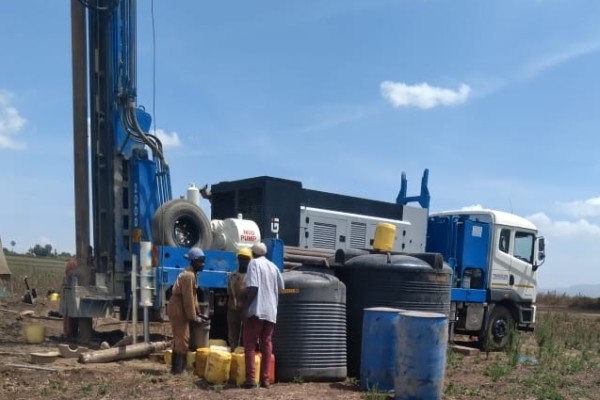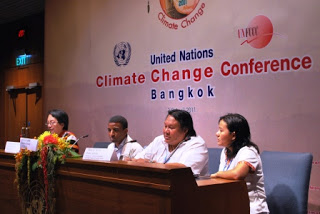
A press conference hosted today by TEBTEBBA focused on the implications of the Cancun Agreement, specifically the text on Reducing Emissions from Deforestation and Forest Degradation (REDD) for Indigenous peoples and local communities.
Vicky Tauli-Corpuz (TEBTEBBA) noted that any decisions on REDD will directly impact millions of forest-dependent peoples around the world. The Cancun agreement recognizes the need to respect the rights and knowledge of Indigenous peoples and local communities, to ensure the conservation of biodiversity, and the need for good forest governance. However, there is a critical need to address the drivers of deforestation, insecure land tenure, land uses, and gender considerations. Robust baselines, including on forests and customary and positive laws, and Indigenous- and gender-sensitive indicators must be established, monitored, and analyzed in order to assess whether we are meeting aims of mitigation and adaptation. All REDD-related activities must be undertaken with full and effective participation of Indigenous peoples and local communities, including with support and capacity-building for participatory mapping.
Ibrahim Njobdi (LELEWAI, Cameroon) acknowledged that Cameroon is part of the Forest Carbon Partnership Facility (FCPF). He voiced concerns about the potential for REDD to undermine security of land tenure at the local level and for African governments to fail to respect REDD safeguards. Noting that Indigenous peoples and local communities have been doing “REDD” in practice for many centuries, so they should be included in REDD processes now that the concept is internationally recognized. In order to do so, there must be strong and comprehensive capacity-building initiatives in local languages and representatives of Indigenous peoples must be involved in REDD decision-making processes at the international, national, and local levels.
Marcial Arias (International Alliance of Indigenous and Tribal Peoples of Tropical Forests) noted that the implementation of any international agreements will depend on relevant national laws. He called for any REDD agreements to reference the United Nations Declaration on the Rights of Indigenous Peoples (UNDRIP) and recognize the traditional knowledge, innovations, and practices of Indigenous peoples, which can contribute greatly to climate change adaptation.
The press conference was held alongside the UNFCCC Ad Hoc Working Group negotiations in Bangkok. Daily coverage of the negotiations is provided by IISD-Reporting Services.

